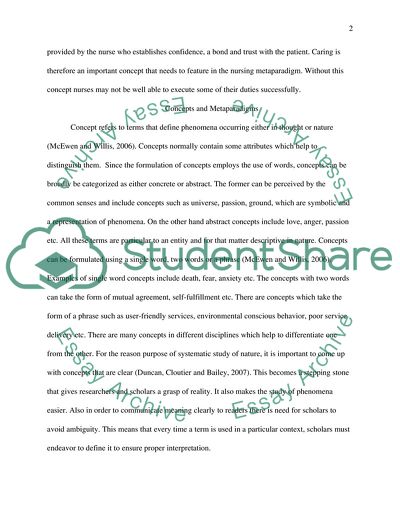Cite this document
(“The Concept of Care and the Nursing Metaparadigm Research Paper”, n.d.)
The Concept of Care and the Nursing Metaparadigm Research Paper. Retrieved from https://studentshare.org/nursing/1566564-develop-an-argument-on-whether-the-concept
The Concept of Care and the Nursing Metaparadigm Research Paper. Retrieved from https://studentshare.org/nursing/1566564-develop-an-argument-on-whether-the-concept
(The Concept of Care and the Nursing Metaparadigm Research Paper)
The Concept of Care and the Nursing Metaparadigm Research Paper. https://studentshare.org/nursing/1566564-develop-an-argument-on-whether-the-concept.
The Concept of Care and the Nursing Metaparadigm Research Paper. https://studentshare.org/nursing/1566564-develop-an-argument-on-whether-the-concept.
“The Concept of Care and the Nursing Metaparadigm Research Paper”, n.d. https://studentshare.org/nursing/1566564-develop-an-argument-on-whether-the-concept.


